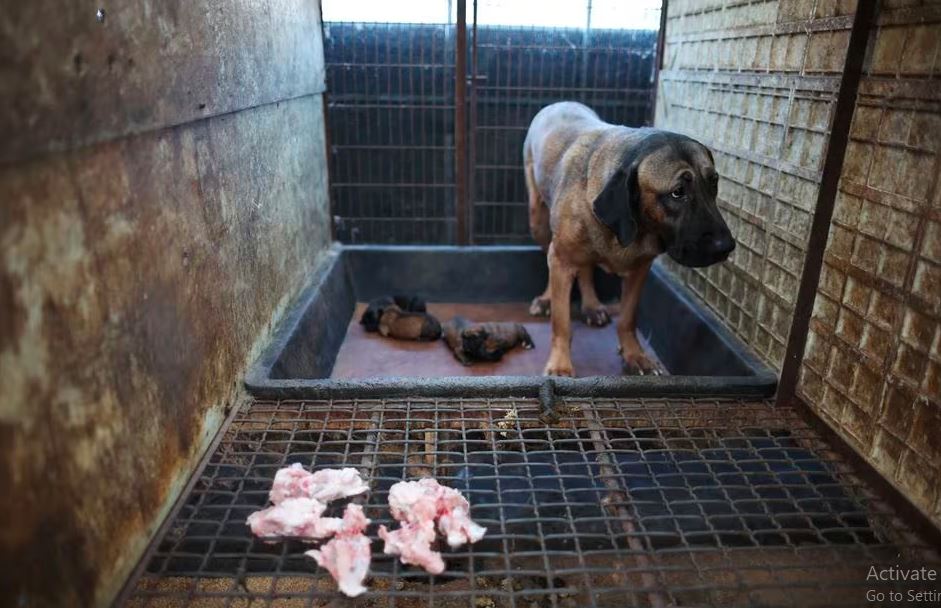No More Dogs Meat? South Korea ban consumption of dog meat

South Korea’s parliament recently passed a bill banning breeding, slaughtering and selling dogs for their meat, a traditional practice that activists have called an embarrassment for the country. Dog meat has long been a part of South Korean cuisine, and at one point up to a million dogs were killed for the trade every year, according to activists. But consumption has sharply declined recently as Koreans embrace pet ownership in droves.
Eating dog meat is a taboo among younger, urban South Koreans, and pressure on the government to outlaw the practice from animal rights activists has been mounting. Eating dog meat was once seen as a way to improve stamina in the humid Korean summer. But the practise has become rare – largely limited to some older people and specific restaurants – as more Koreans consider dogs as family pets and as criticism of how the dogs are slaughtered has grown.
Activists say most dogs are electrocuted or hanged when slaughtered for meat, though breeders and traders argue there has been progress in making the slaughtering more humane.

Support for the ban has grown under President Yoon Suk Yeol, an animal lover who owns six dogs and eight cats with first lady Kim Keon Hee, also a vocal critic of dog meat consumption.
The bill was passed by an overwhelming 208 votes with two abstentions in the single-chamber parliament.
The legislation, which states its purpose is “to eradicate the consumption of dogs” will take effect after a three-year grace period. The breeding and slaughtering of dogs to produce meat for human consumption will be punishable by up to three years in prison or 30 million won (Korean Currency) in fines. The bill does not stipulate any penalties for eating dog meat per se.
In a survey published by Animal Welfare Awareness, Research and Education, a Seoul-based think tank, mostly people had not eaten dog meat for the past year and they would not do so in the future.
The agriculture ministry said it will consult with relevant businesses to ensure they continue to operate stably and provide “maximum support within a reasonable range”.

The ministry has estimated that as of April 2022 some 1,100 farms were breeding 570,000 dogs to be served at around 1,600 restaurants.
The farmers’ association said the ban will affect 3,500 farms raising 1.5 million dogs as well as 3,000 restaurants.
Historic bill
Activists also welcomed the bill, saying it was “history in the making”.








